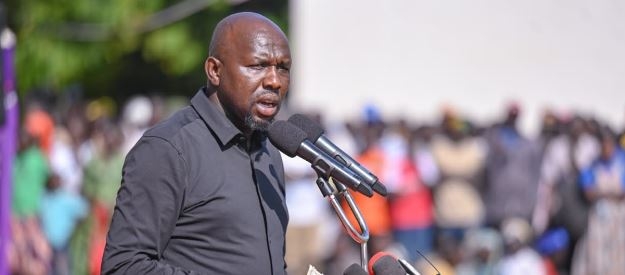Last Friday's BBI judgment that upheld the High Court findings was indeed a landmark as it was unprecedented at the Court of Appeal. Six of seven judges agreed the BBI process was in itself unconstitutional.
A rather detailed amendment of the 2010 Constitution, the court found that the basic structure principle applies to our jurisdiction. It said the power to alter it lies primarily with the people under Article 255 and not any other entity, especially government or the person of the president.
The BBI process had been led by the President Uhuru Kenyatta himself in person and by Raila Odinga.
The second finding was that amendments are supposed to be minor and primarily through a parliamentary initiative under Article 256.
This applies to issues such as increasing the number of constituencies as provided for in Article 89 that gives the IEBC the power to do so every eight to 12 years. The amendments BBI sought to achieve amounted to, in effect, dismembering the Constitution.
The IEBC couldn’t be directed to create more constituencies. Further, IEBC’s decisions were put to question since it lacked a quorum by the time it considered the BBI signatures. The judges also ruled that the president can be sued while still in office, thereby making him accountable and not immune while still in office.
The court therefore found the BBI Constitutional Amendment Bill was unconstitutional and the BBI steering committee was illegal.
These findings have in effect forestalled anyone from using the constitutional amendment process to control politics for personal selfish ends.
The Constitution has been protected from being ‘captured’ by the prevailing political forces that would cause a retrogression in the gains we had secured under the 2010 Constitution.
To begin with, the presidency is no longer the most powerful office in the land, above the law, as was the case in the old constitution. This has been demonstrated by the nullification of the 2017 presidential results and now the BBI rulings, both at the High Court and the Court of Appeal.
The effect is that any office bearer will have to confine himself within the ambit of the law while exercising power. BBI sought to recreate a far more powerful imperial presidency, controlling Parliament through the appointment of ministers and their deputies from amongst parliamentarians.
in his last term, President Daniel Moi appointed an odd 75 assistant minsters over and above a Cabinet of more than 35 ministers. He did it to consolidate his grip against an onslaught by a resurgent opposition.
The BBI president would have controlled the Judiciary through the Ombudsman, and through the formation of a tribunal to remove any of them, as is currently the case.
His attorney general was to sit in all the three arms of government as a full minister, a member of Parliament and a member of the JSC. This would have been a return to the powerful Njonjo days whereby it was ‘treasonable’ to ‘imagine’ the death of the President.
Secondly, the Judiciary has come of age, a true win for the rule of law. Eleven out of 12 judges have unanimously agreed on the unconstitutionality of the BBI Constitutional Amendment Bill.
This is despite the fact the President had recently appointed some of them to the appellate court after a delay of more than two years.
In effect, this deals a body blow to the politics of patronage since it was expected that the judges would ‘reciprocate’ by issuing a favorable judgment. By agreeing with their counterparts in the High Court, the appellate judges affirmed the rule of law is sacrosanct. No persuasion other than facts as adduced before the court should form the material basis of any ruling or judgment in a dispassionate and impartial manner.
Thirdly, the BBI ruling demonstrated that reason is greater than might. Just before the ruling, Kenyans witnessed the arrest and prosecution of two judges on allegations of corruption that to date haven’t been verified.
This was indeed a very low moment in the history of the relations between the Executive and the Judiciary. Leon Jaworski (the US special prosecutor in Watergate) noted that “when dictators and tyrants seek to destroy the freedoms of men, their first target is the legal profession and through it the rule of law”.
Even as Attorney General Kihara Kariuki and Solicitor General Ken Ogeto contemplate going to the Supreme Court, it will be extremely difficult for the seven judges to countermand the other 11 who have concurred with the petitioners.
Fourthly, the ruling has put to rest arbitrary constitutional amendments aimed at serving the political schemes of the moment, as witnessed in the 60s when the presidential age limit was raised to 35 years to stop Thomas Joseph Mboya from becoming president.
The same was done in 1982 making Kenya a de facto one party state until Article 2A was amended 10 years later in 1992. Persons with disabilities and the youth had lost representation in the Senate and the Five Per Cent principle hadn’t been unpacked as had been canvassed to provide jobs for persons with disabilities.
Long live the Constitution of Kenya and its aspirations to make all equal, before and under the law. Alea Iacta Est —the die has been cast!
(Edited by V. Graham)

















